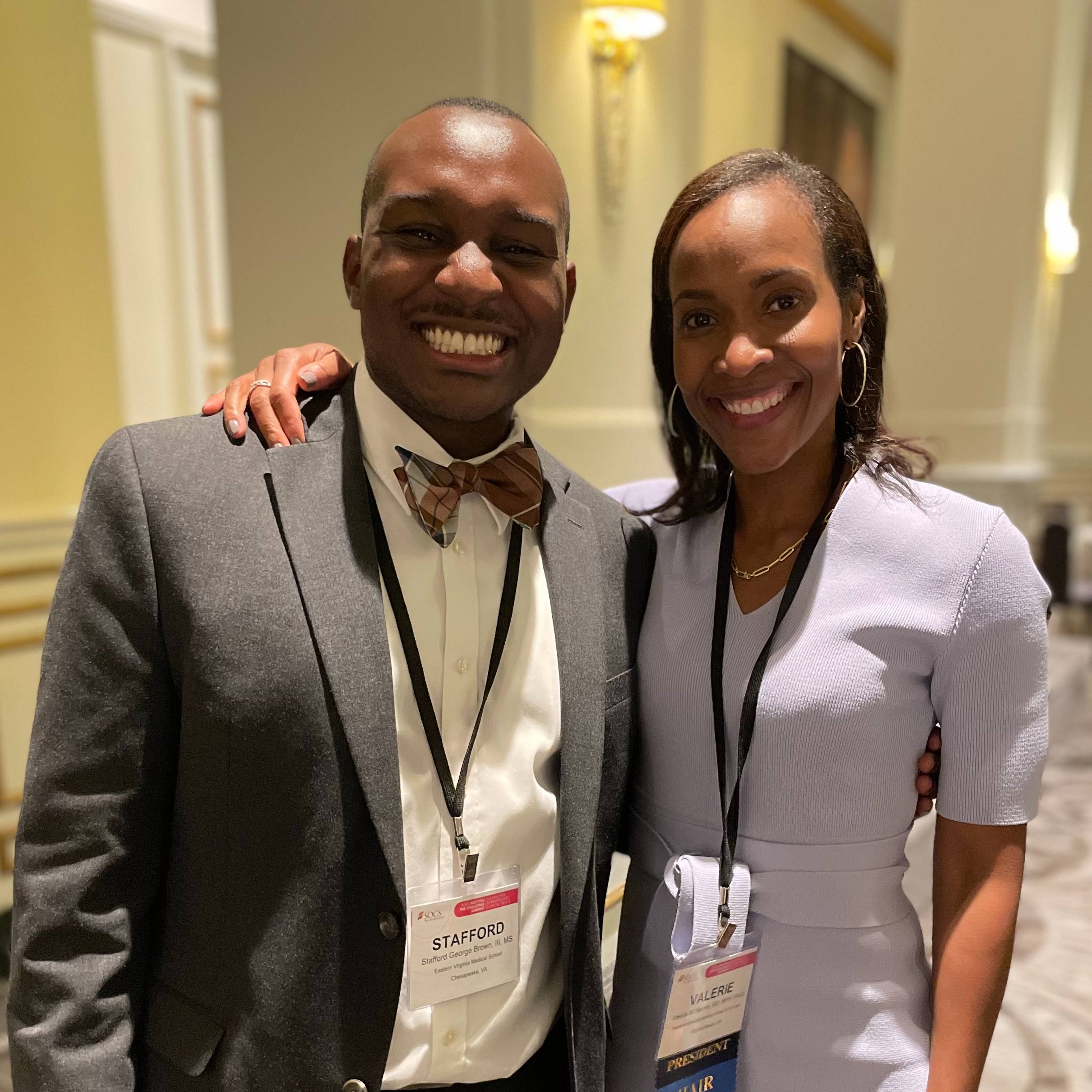
Dr. Valerie M. Harvey with mentee Stafford Brown III
I am extremely grateful for the Skin of Color Society Mentorship Program! I cannot thank my mentor, Dr. Valerie Harvey, enough! She guided me during every stage of my application process. Last year, I was finishing my MBA and knew that my first rotation back would be a Dermatology away rotation. I was nervous, but Dr. Harvey planned a dermatology bootcamp where I worked with her in her office. She helped improve my patient presentations, clinical decision-making, and critiqued a presentation I made discussing new biologics and their indications. She was always available to answer questions, and we met in person, on zoom, and on the phone multiple times throughout the application season. We discussed how many and which programs to apply to, how to redraft my personal statement, and how to reorganize my noteworthy characteristics. During the interviewing and ranking process, Dr. Harvey helped me understand my personal and career goals and create the rank list that helped me match at my #1! Throughout this time, Dr. Harvey also taught me how to improve my research paper writing, and we were able to submit three publications together. I want to thank the Skin of Color Society and Dr. Harvey again and become a future SOCS mentor!
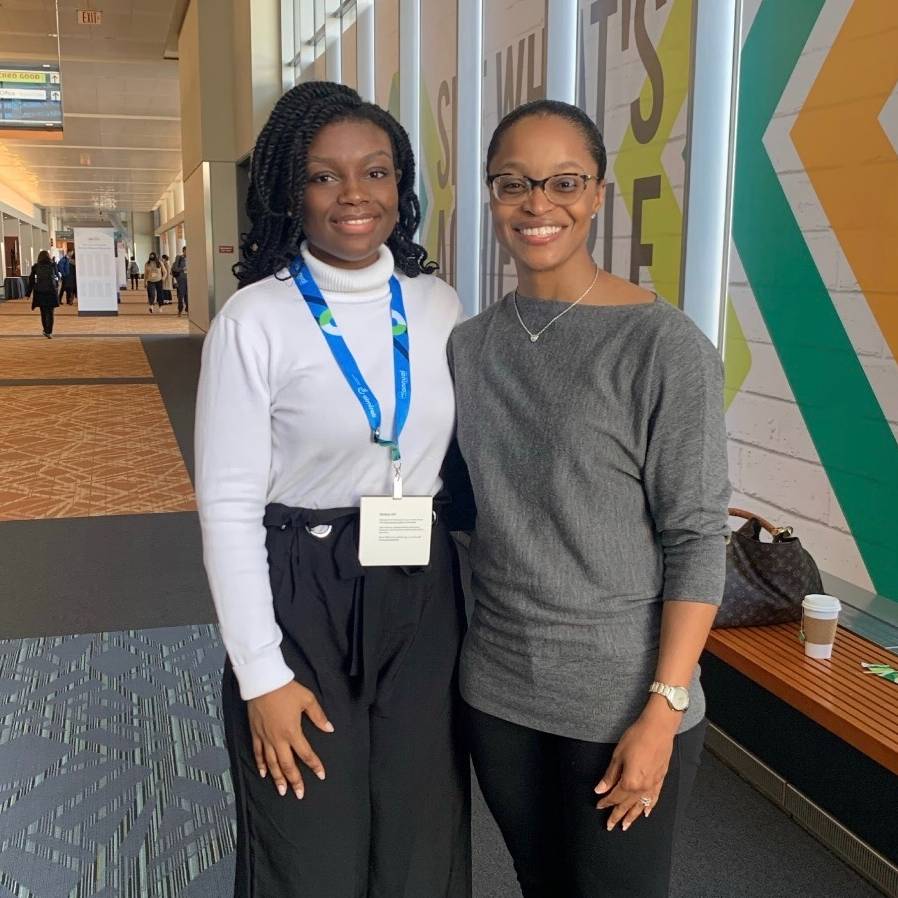
Dr. Brandi Kenner-Bell with mentee Charissa Obeng-Nyarko
I sought the SOCS Mentorship Program to establish rapport with a mentor who would provide one-on-one guidance and support my interests in dermatology which include skin of color, autoimmune skin diseases, and procedural dermatology. Fortunately, I was matched with Dr. Kenner-Bell, who shared those interests. Since we connected in March 2022, we have gradually built our mentor-mentee relationship. Besides our several communications via text, email, and Zoom, we met in-person at the American Academy of Dermatology meeting twice this past year. Although, we did not work on any research or projects this past year, Dr. Kenner-Bell was a wonderful source of support and wisdom concerning career development in dermatology.
As a 2023-2024 recipient of the SOCS Observership Grant, I have been paired with Dr. Kenner-Bell. I look forward to doing a rotation at her institution, Northwestern Department of Dermatology within the next year. Though the SOCS Mentorship Program has come to an end, I still aspire to continue and maintain a positive collaborative relationship with Dr. Kenner-Bell. I am forever grateful that Skin of Color Society opened those doors for me. As someone coming from an institution without a dermatology program, my participation in SOCS programming has been a life-changing experience!
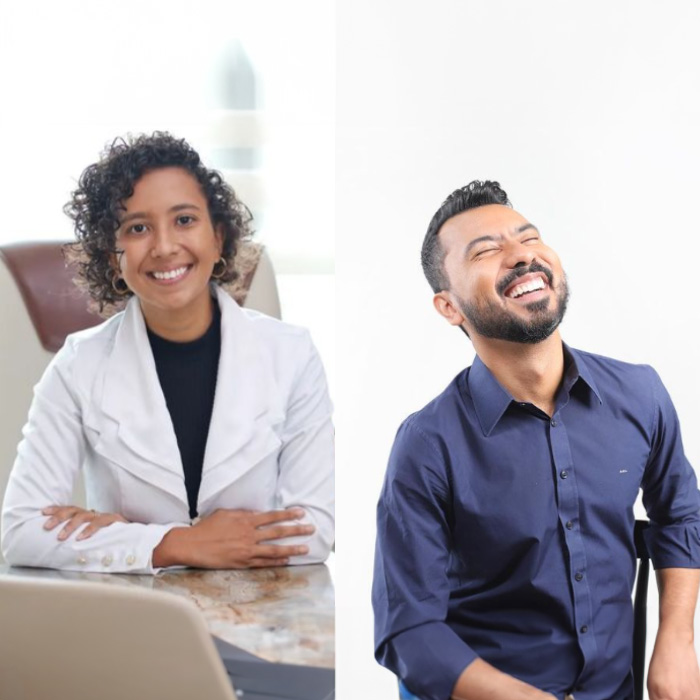
Dr. Andre Moreria with mentee Yana Carvalho, MD
My experience with the mentorship program has been very rewarding. Dr. André Moreira knew many of the challenges I faced in Brazilian healthcare. As an active member of the dermatology community in Brasil, he inspired me to continue to pursue my goals and be a role model for other young dermatologists working with skin of color. The biggest lesson I learned from him is that we care about our patients and they connect to us. I thank the Skin of Color Society for giving us this opportunity and hope to return the favor by being useful to our community in the future.
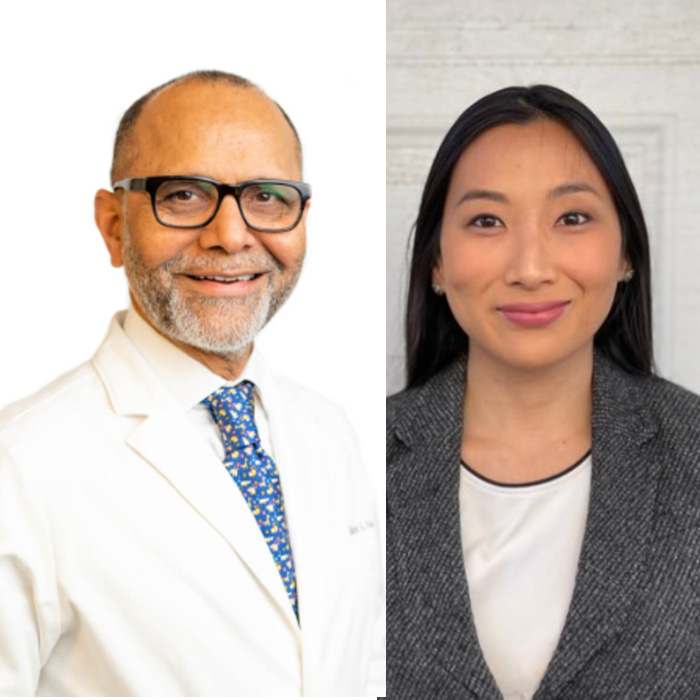
Dr. Babar Rao with mentee Andressa Akabane
The Skin of Color Society (SOCS) mentorship experience helped me better understand the clinical care of patients with skin of color. Dr. Babar Rao provided me with his insights into the latest research and developments in the field of dermatology for skin of color. The sessions provided by the SOCS were also very useful and helped me learn about effective communication, problem-solving, and decision-making to become a better leader and position for career success. Through this experience, I had access to new information, ideas, and perspectives that will support my long-term goal to become a dermatologist and clinical trialist focused on skin of color in the U.S.
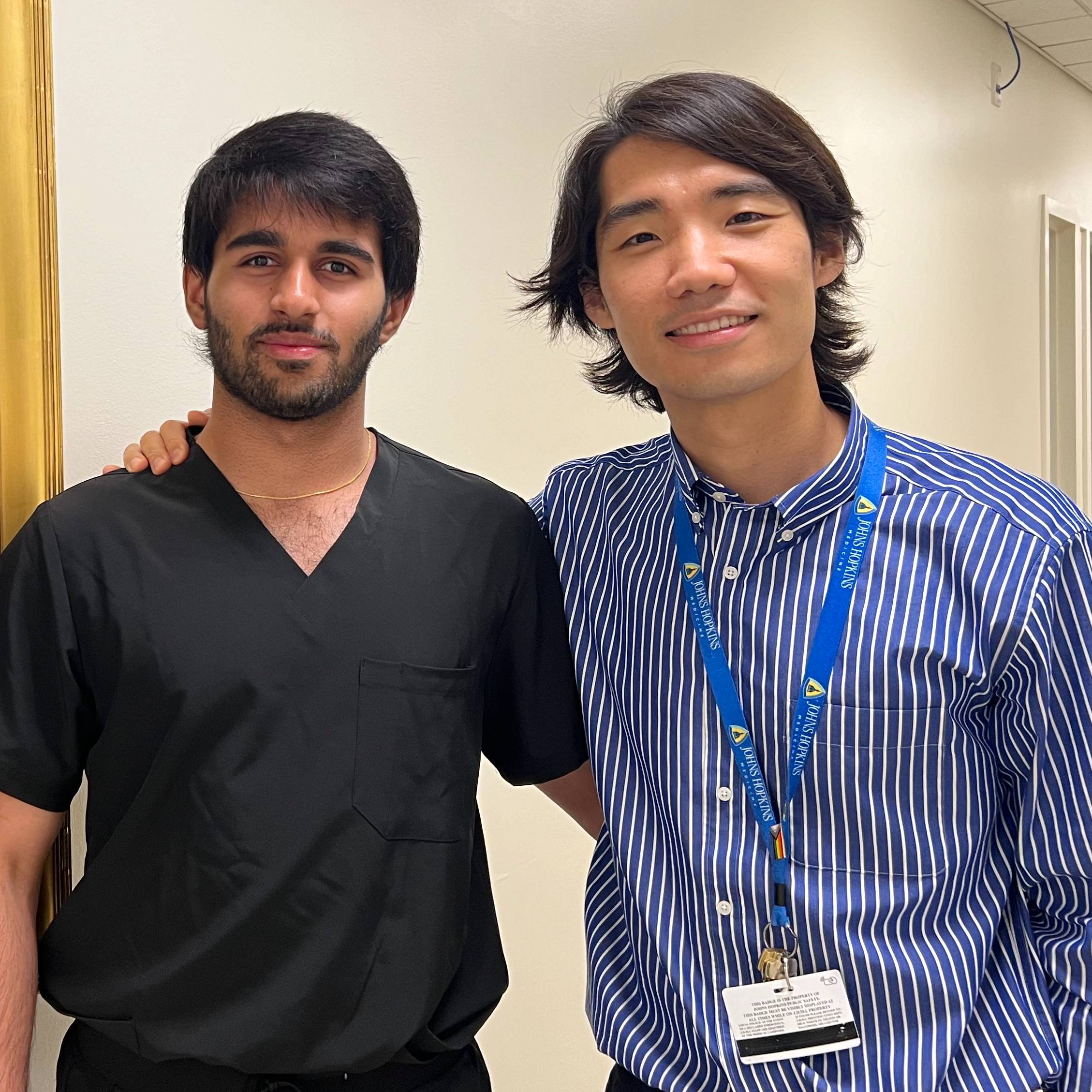
Mentee: Sach Thakker, BS
Mentor: Jun Kang, MD
The Johns Hopkins University School of Medicine
During my observership at Johns Hopkins Hospital (JHH), I had the invaluable opportunity to delve into dermatology with a focus on skin of color (SOC) patients. Under the mentorship of Dr. Jun Kevin Kang, I engaged in both clinical and research activities that have profoundly shaped my understanding and aspirations in dermatology.
The clinical component of my observership was enriching and eye-opening. I shadowed Dr. Kang and his team, observing a wide variety of dermatological conditions prevalent among SOC patients, including cutaneous lupus, dermatomyositis, and severe drug reactions. We were on the consult service, and I got to closely work with a senior resident and rotating 4th year medical student. This hands-on experience allowed me to appreciate the nuances in diagnosing and managing dermatological conditions in patients with diverse skin tones. I gained practical skills in patient communication, clinical assessment, and treatment planning, which are crucial for my future practice.
I actively participated in two significant IRB-approved research projects, which enhanced my research skills and knowledge. The first project was a cohort study on Steven’s Johnson Syndrome (SJS)/Toxic Epidermal Necrolysis (TEN) patients at JHH and the Uniform Services University. This study aimed to identify disparities in the presentation, management, and outcomes of SJS/TEN between Black and non-Black patients. Through data collection and analysis, I learned about the higher incidence rates and increased risk factors for mortality among SOC patients. The second project involved a longitudinal study of inpatient dermatology consultations at JHH from 2017 to 2022. This research aimed to determine which patients benefit most from inpatient consultations and how to optimize hospital resources for dermatological care.
The mentorship I received from Dr. Kang was exceptional. He provided continuous guidance, feedback, and encouragement, fostering a supportive learning environment. Additionally, I had the privilege of interacting with other renowned dermatologists, including Dr. Sewon Kang, Dr. Crystal Ugochi Aguh, Dr. Jihad Alhariri, and Dr. Sima Rozati. These interactions broadened my professional network and exposed me to various research and career opportunities within the field of dermatology. The networking and mentorship dynamics were pivotal in enhancing my professional growth and development.
This observership significantly impacted my personal and professional development. I developed a deeper understanding of the health disparities faced by SOC patients and the importance of promoting health equity in dermatology. The experience reinforced my commitment to advocating for inclusive, accessible, and culturally sensitive diagnostic tools and treatments. Moreover, the research skills and clinical knowledge I acquired during this observership will be instrumental in my future career as an academic dermatologist.
In conclusion, my observership at JHH was an enriching and transformative experience. It provided me with valuable clinical skills, research expertise, and professional connections, all of which will contribute significantly to my career in dermatology. I am grateful for the support
from the SOCS Observership Grant, and I look forward to applying the knowledge and skills gained to improve dermatological care for SOC patients.